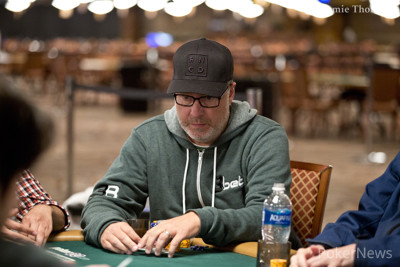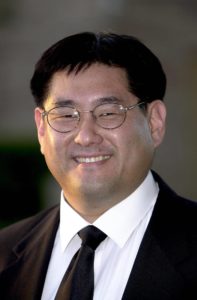David Matsumoto Poker
With the end of Day 30, the 2017 World Series of Poker (WSOP) is a full month old. Day 30 saw three Canadians advance to Day 2 in Omaha Hi-Lo, and a top-10 finish for another Canadian in hold'em. Two bracelets were awarded, and action continued in Omaha, stud, and hold'em events.
- David Matsumoto's Poker Career David Matsumoto is a well known poker player from Playa Del Ray, United States.He won more than USD 108,844.00 in his poker history with poker live tournaments alone.
- David Matsumoto poker results, stats, photos, videos, news, magazine columns, blogs, Twitter, and more.
- The biggest stack at the end of Day 1 belongs to Larry Tull with David Matsumoto and Igor Sharaskin the only other players to crack the 100,000-chip mark. Other notables going to Day 2 include Josh Arieh, Alex Luneau, Jared Bleznick, Shaun Deeb, Matt Glantz, and Anthony Zinno.
David Matsumoto is the director of Humintell, professor of psychology at San Francisco State University. You know, you play poker and that there are tells that people have.
Florence Takes 10th in $1,500 No-Limit Hold'em
Canada's James Florence came into the final day of Event #52: $1,500 No-Limit Hold'em second in chips, but had a rough Day 3. By the time the unofficial final table of 10 players was set, Florence was second from the bottom. He ended up bubbling the final table after getting his last 13 big blinds into the middle with pocket eights, only to find himself in serious trouble against the pocket nines of Mikhail Rudoy. Rudoy's bigger pair held and Florence had to settle for $21,928 and 10th place.

The bracelet fight came down to Mohsin Charania and Cary Katz after Charania knocked out Brandon Ageloff in third for $161,844. Charania had Katz out-chipped by nearly three to one when heads-up play began, and the dual was over within 11 hands. Katz was forced to settle for second place and $225,191 while Charania collected $364,438 in addition to his first bracelet.

Silver Takes Six-Handed Gold
Day 3 of Event #53: $3,000 Limit Hold'em 6-Handed started with an unofficial final table of seven players, with Max Silver from the United Kingdom sitting on top of the pack. Silver was the only player to start the day with more than a million chips, and his closest competitor, Ayman Qutami, was more than 200,000 chips behind Silver.
Silver powered his way through the final day, and found himself heads up against Guowei Zhang with a massive chip lead. Silver started two-handed play with nearly 3 million chips, while Zhang had 900,000. Zhang was able to hold out for awhile, staying alive for more than two dozen hands, before finally falling to Silver. Zhang's second-place payday was $106,694, while Silver's first bracelet came along with $172,645.
Clements Leads After Two Days of $10K Pot-Limit Omaha
David Matsumoto Poker Tournaments
Six Canadians found their way into Day 2 of Event #54: $10,000 Pot-Limit Omaha 8-Handed Championship, with Maxim Babko and Jaspal Brar starting the day as the top two Canadians. None of the Canadians who started Day 2 were still standing at the end, but Vancouver-residing American Scott Davies managed 51st place for a cash of $15,934.
Day 2 ended with just 39 players remaining in the hunt for the Championship. American Scott Clements leads the chip counts with 1,700,000. Michail Karapanos, Ben Lamb, and Ryan Miller all have more than one million chips, with John Racener just below that mark with 987,000. Other notables returning to play on Day 3 are Johnny Lodden, John Monnette, and Mike Gorodinsky.

Hickey Cashes Out on Day 2 of Stud, Tsong Lin Leads
Wesley Hickey started Day 2 of Event #55: $1,500 Seven Card Stud in sixth place of 62 remaining as the only Canadian player to make it through Day 1. Hickey's Day 2 didn't go quite as well as his first day, however, ending his run in 21st place for a cash of $3,142.
Just seven players are left after the end of Day 2, with American Tsong Lin leading the way with 791,000. Yueqi Zhu from China bagged the second-biggest stack. Also in contention on Day 3 will be Tom Koral looking to nudge himself closer to $2M in lifetime earnings.
Watson Top Canuck, Barbero Leads in $5K No-Limit Hold'em After First Day
David Matsumoto Polo
Day 1 of Event #56: $5,000 No-Limit Hold'em drew 623 players to the felt but, by the end of 10 levels of play, just 248 players remained in contention. They'll be looking for one of 94 payouts with all eyes on the top prize of $618,285. Mike Watson leads five Canadians after one day of play, bagging a stack of 128,100, good for 18th place overall. He'll be joined on Day 2 by fellow Canucks Stephen Cartner, Marc-Andre Ladouceur, Ari Engel, and Jean-Pascal Savard.
There's lots of competition for the Canadians on Day 2, with Argentinian veteran Nacho Barbero heading up the chip counts with 230,300, while David Coleman bagged the second-biggest stack with 205,200. Joining them in the hunt are notables like Juha Helppi, Michael Mizrachi, Olivier Busquet, Jason Mercier, Jonathan Little, and Nick Schulman.
Mammon Leads Canadians into Day 2 of $2,500 Hi-Lo Mix
When all the numbers were in, 405 players showed up to get in some split-pot action in Event #57: $2,500 Omaha Hi-Lo 8 or Better/Seven Card Stud Hi-Lo 8 or Better Mix. After a full day of play, 126 players were left in the mix, with three Canadians still fighting for the top prize of $215,902. A lot of work is left to do on Day 2 before the bubble, with just 61 spots paying out.
Joshua Mammon is the top dog among Canadians. He'll start Day 2 with 66,500 and will be joined by Thomas Taylor and Sorel Mizzi. The biggest stack at the end of Day 1 belongs to Larry Tull with David Matsumoto and Igor Sharaskin the only other players to crack the 100,000-chip mark. Other notables going to Day 2 include Josh Arieh, Alex Luneau, Jared Bleznick, Shaun Deeb, Matt Glantz, and Anthony Zinno.
Tags
World Series of Poker2017 WSOPMIke WatsonJames FlorenceSorel MizziScott DaviesWesley HickeyMarc-Andre LadouceurAri EngelJoshua MammonRelated Tournaments
World Series of PokerRelated Players
Sorel MizziMike WatsonMarc LadouceurScott DaviesAri EngelMarc-André Ladouceur
Happy or not, Russians rarely smile in public.
By Marina Krakovsky published January 1, 2009 - last reviewed on May 15, 2017
American visitors to Russia often can't get over the sullen looks on the natives' faces, worn by service workers and passersby alike. But what may appear to be a nationwide case of the blues has a more benign origin.
While it's true Russians are generally less happy than Americans, the difference isn't huge, explains PT blogger Sonja Lyubomirsky, a psychologist at the University of California-Riverside and the author of The How of Happiness. 'It could explain part of the effect, but it's not the whole story,' she says. In fact, in private, it's Americans who look more subdued, says Lyubomirsky, who grew up in Moscow. 'You go to a dinner at a Russian home, and the Russians seem happier—they're drinking, singing, telling stories.'
This public-private divide hints at a set of cultural rules about when to show your feelings. David Matsumoto, a psychologist at San Francisco State University who led a large study of emotional display rules around the world, found that Russians control their expressions of emotion much more than Americans do. This is true of collectivist societies in general: Where people are more interdependent and group-oriented, they tend to either neutralize their emotional responses or mask one expression with another—especially with strangers or in public.
Tamping down emotional displays reinforces the borders between friends and strangers, which in collectivist societies are hard to cross. In individualist, mobile societies like the United States, in contrast, relationships come and go more easily, leading to more openness with everyone.
Oblivious to these rules, both sides are bound to misread each other's faces. Just as Americans mistake Russian reserve for surliness, Russians find friendly American smiles phony.
No one is sure how Russians came to prefer neutral expressions to masking their emotions with smiles the way the intensely collectivist Japanese do. It may be that Russians, spread out on their vast land, had less need for pleasantries. Or Russia's shortage of resources for coping with a harsh climate put its people in survival mode. Pile on a brutal history—especially in the Soviet era—and it's not surprising Russians are cautious around strangers.
Whatever the reason, it takes longer to befriend a Russian. But as Matsumoto puts it, 'Once you're drinking vodka shots together, they're more expressive than anyone else.' —Marina Krakovsky
Buried Feelings
Moscow subway posters have been urging the public to smile: 'It's an inexpensive way to improve your looks,' says the headline above an uncharacteristically cheerful Metro worker. But it'll take more than an ad campaign aimed at increasing well-being to change Russia's deep-seated attitudes. Linguist Iosif A. Sternin of Russia's Voronezh State University provides a sampling of the unwritten rules of smiling:
David Matsumoto Poker Game
- A Russian smiles only for good reason—and only if the reason is apparent to those around him.
- It's not customary to smile while helping customers or conducting serious business.
- It's not customary to smile to lift another's spirits.